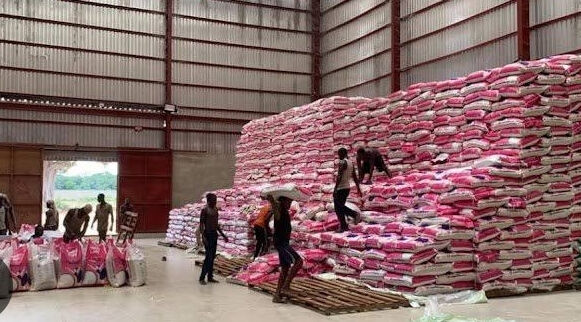Rice Mills Shutdown in Nigeria as Economic Woes Increase
In the years between 2015 and 2020, rice mills sprang up across the country especially in the Northern states, owing to the determination of the then federal government to ensure the country achieves self-sufficiency in rice production.
In fact, the then President Muhammadu Buhari’s mantra was that “we must grow what we eat, and eat what we grow” emphasizing the need to wean Nigeria out of food import dependency.
However, with the price of diesel which has more than doubled in the last 18 months, pushing energy cost higher, coupled with the new electricity tariffs for Band A customers, realizing this ambition has since shattered.
The price of rice in the market has increased by over 140% in the last year to around N100,000 per 50kg bag in the market.
In a bid to stem the rise in diesel prices, the federal government recently announced the removal of 7.5% VAT on diesel imports; a similar move was made in December 2023 to help reduce the increase in diesel prices.
But it is not only the high running cost that is responsible for the spate of shutdown of rice mills. other factors can be identified including the absence of rice paddies and the high cost of lending.
Getting rice paddy for mills has become a herculean task in the past few years owing to the significant disruption in rice supply following the destructive floods of 2022. The Lagos state government, which built a massive rice processing plant- arguably one of the biggest in West Africa has seen very minimal activity due to the absence of rice paddy.
While the administration of President Buhari and the then CBN Governor, Godwin Emefiele were known for significant interventions to the productive sector especially agriculture and rice farmers in particular, their successors have halted such intervention.
The current CBN leadership has explained that the nearly N10 trillion in intervention was partly responsible for the current money supply problem and further crisis, with Governor Cardoso explained that the CBN does not have the capacity for such interventions and the bank will be returning to orthodox monetary policy.
Reacting to the current report, Dr. Augustine Maduka the President of the Community Allied Farmers Association of Nigeria (COMAFAS) noted that the current prevalence of shutdown of rice mills was inevitable considering the two critical reforms embarked upon by the current administration.
However, he explained that to bring the rice mills back to life, inputs for these rice millers should be subsidised to reduce the effects of these economic shocks on their business.
He further advised that relevant government authorities at the federal and state levels should be aggressive about the upcoming dry season farming considering the impact of recent floods on harvest in the current farming season.

